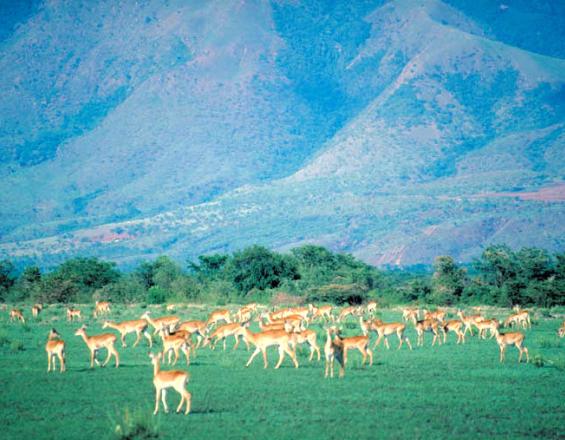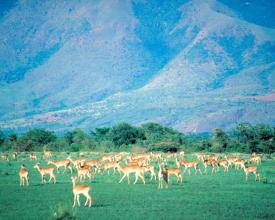Transboundary collaboration in a Conflict and Post-Conflict Context
Solución instantánea

Kobs in Virunga National Park, Democratic Republic of the Congo © IUCN / Jim Thorsell
Due to the increase of threats such as poaching, a joint initiative has been agreed by DRC, Rwanda and Uganda to protect 8 neighboring PAs of the Greater Virunga sustainably and effectively, demonstrating that conservation across borders is possible, even during armed conflicts and political unrest. As a result, transboundary committees have been set up, joint patrols carried out, and park managers make decisions jointly with authorities and local communities.
Last update: 17 Apr 2018
1835 Views
Impacts
• The successful collaboration between DRC, Rwanda and Uganda has resulted in a formalised ministerial agreement with another due to be signed in the near future, to protect the area’s biodiversity and flag species such as the Gorilla by pooling human resources together.
• The neighboring communities of the PAs are involved in the management of the park, and they actively take part in the operational planning process and the evaluation of the joint strategic plan, and as a result are more willing to conserve natural resources and use them in a sustainable way. Different activities aimed at further supporting the development of local communities are being created such as beekeeping, ecotourism and the construction of drinking water tanks.
• An operational joint surveillance system made up of rangers from the three different countries is being implemented across the national borders, and intelligence on illegal activities provided by the surveillance system is shared among all the park managers, creating a more thorough and informed approach to terminating illegal practices.
